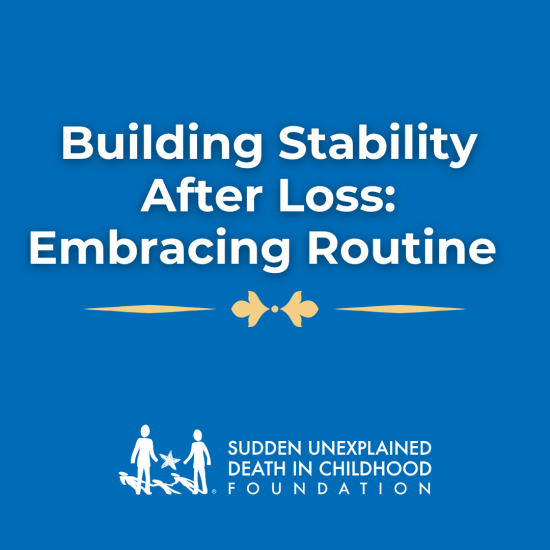09 May Building Stability After Loss: Embracing Routine

In the aftermath of traumatic loss, finding stability amidst the turmoil of emotions is crucial for healing. Simple routines like waking up at the same time each day or having a nutritious breakfast; taking a short walk may seem mundane, but its impact is profound.
Research has shown that routine offers more than just a sense of normalcy—it provides structure, predictability, and control in a time when everything feels chaotic and uncertain. From a neurobiological perspective, adhering to routine helps regulate emotions and reduce stress. Engaging in familiar activities at specific times stabilizes neural pathways associated with emotional regulation, offering a sense of order amidst the chaos of grief.
Physically, routine plays a vital role in promoting overall well-being, especially for those who have experienced a traumatic loss. For example, engaging in regular exercise, even a short walk, can release endorphins, the body’s natural painkillers and mood elevators. This simple yet impactful activity can offer a brief respite from the overwhelming emotions associated with grief and provide a much-needed boost in mood. Establishing a consistent sleep schedule becomes crucial in managing the physical toll of grief. By prioritizing a regular bedtime and wake-up time, individuals can improve sleep quality, enhance mood, and bolster cognitive function.
But how do we incorporate routine into our lives amidst the chaos of loss? This is where SMART goals come into play. SMART goals provide a structured framework for setting and achieving objectives, making them particularly useful for building and maintaining routines and self-care plans.
Let’s say your goal is to incorporate mindfulness meditation into your daily routine to help manage stress and improve emotional well-being. Using the SMART framework, you could set a goal like this:
- Specific: I will practice mindfulness meditation for 10 minutes each morning before starting my day.
- Measurable: I will track my progress by recording the number of days per week I complete my meditation practice.
- Achievable: I will start with a 5-minute meditation and gradually increase to 10 minutes as I become more comfortable.
- Relevant: Mindfulness meditation aligns with my goal of reducing stress and improving emotional well-being.
- Time-bound: I will commit to practicing mindfulness meditation every morning for the next 30 days.
Incorporating SMART goals into your routine allows you to track your progress, stay motivated, and maintain momentum towards your objectives. Over time, you’ll find that these small, consistent actions add up to significant improvements in your overall well-being.
In addition to routine and SMART goals, another tool that can help individuals set routines in their lives after trauma and loss is the concept of habit stacking. Habit stacking involves linking new habits to existing ones, making it easier to incorporate them into your daily routine. For example, if you already have a habit of brushing your teeth before bed, you could stack a new habit like journaling or reading a book onto this existing routine. Other examples of habit stacking include doing a short meditation after your morning coffee, or practicing gratitude while you prepare dinner.
By combining routine, SMART goals, and habit stacking, individuals can create a supportive framework for healing and recovery in the aftermath of traumatic loss. Through small, consistent actions and intentional efforts, individuals can find solace amidst grief and gradually rebuild their lives with resilience and strength.
As you embark on this journey of rebuilding, remember to give yourself permission to start small and to slowly build routines over time. Healing is not a linear process, and it’s okay to take things one step at a time. Be gentle with yourself and give yourself grace as you relearn to live life in the aftermath of loss. Each small step forward is a victory, and with time and patience, you will find your way towards healing and wholeness once again.



